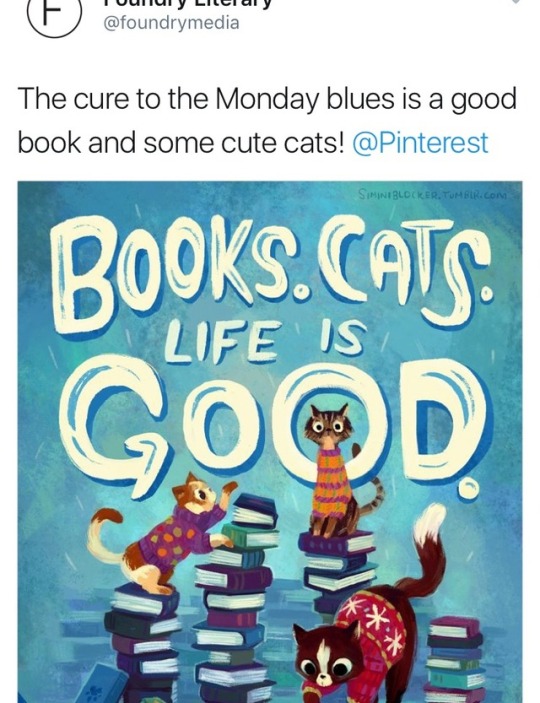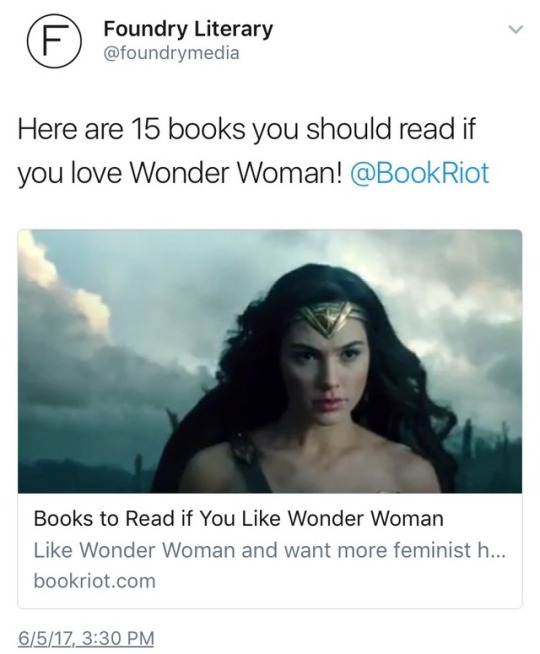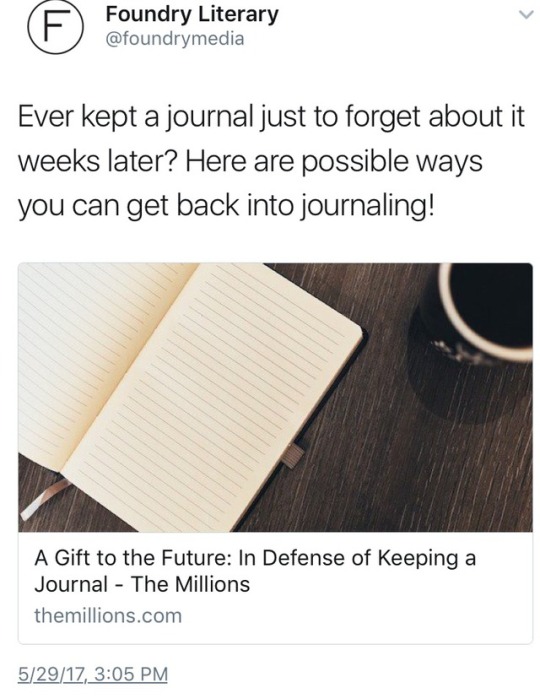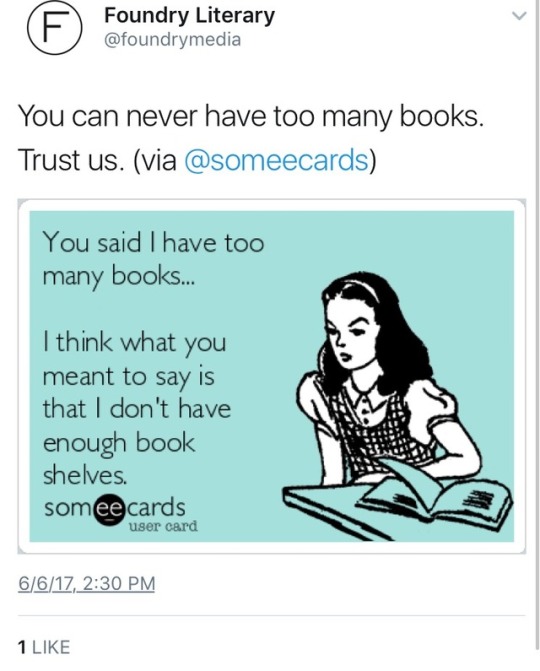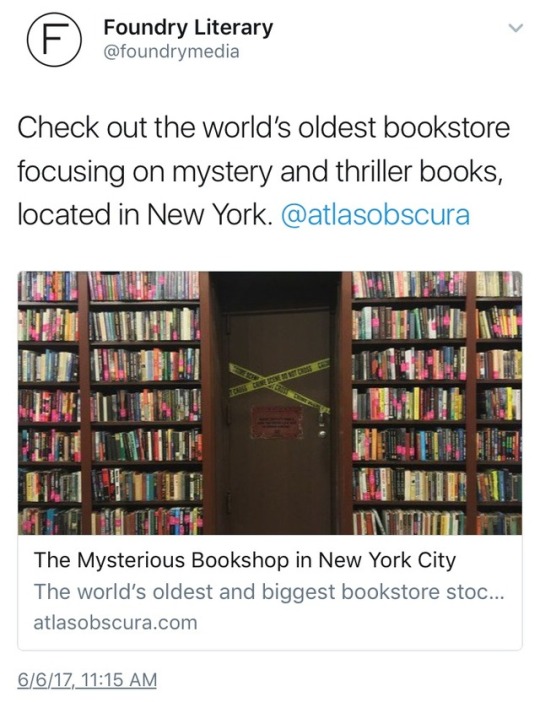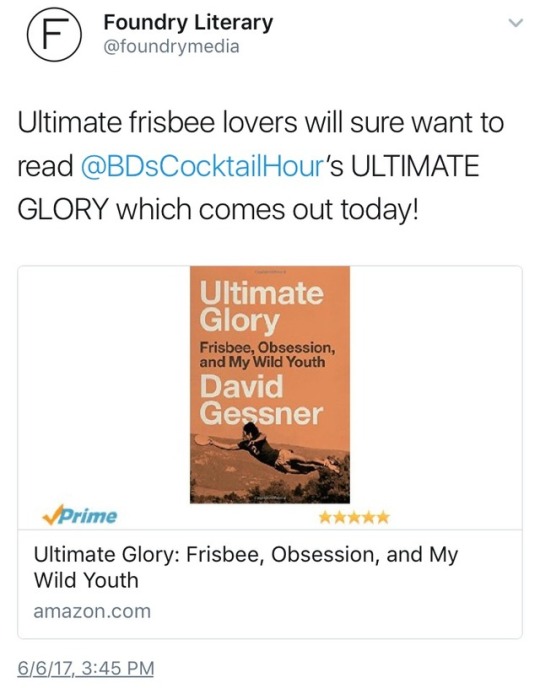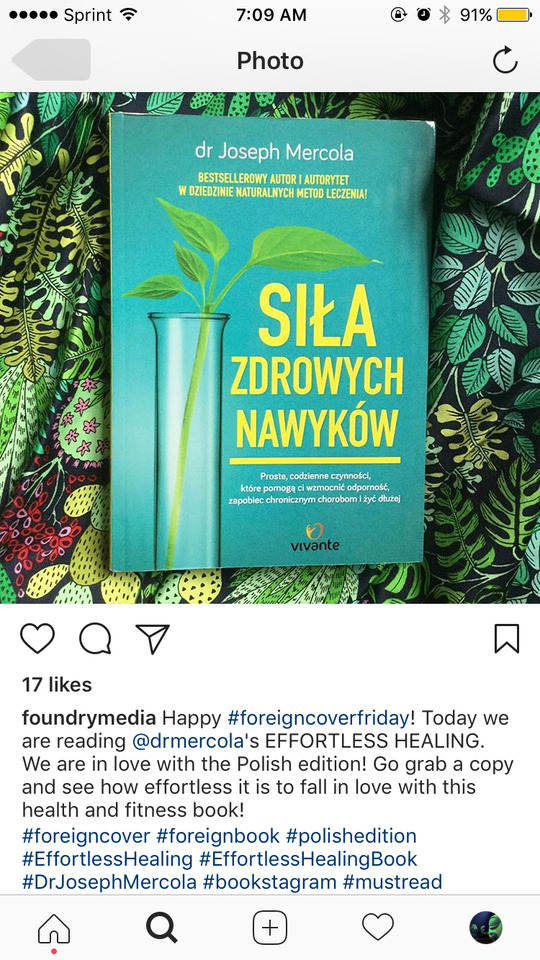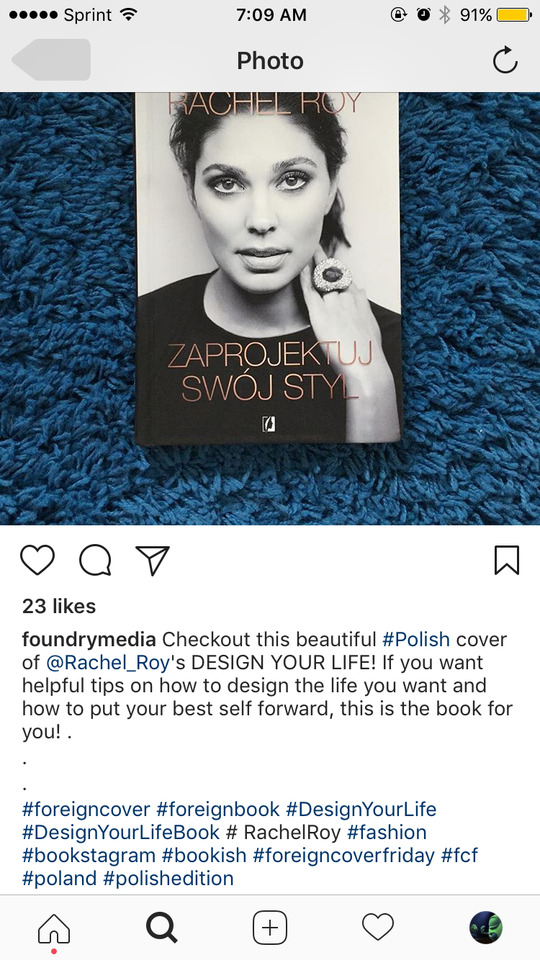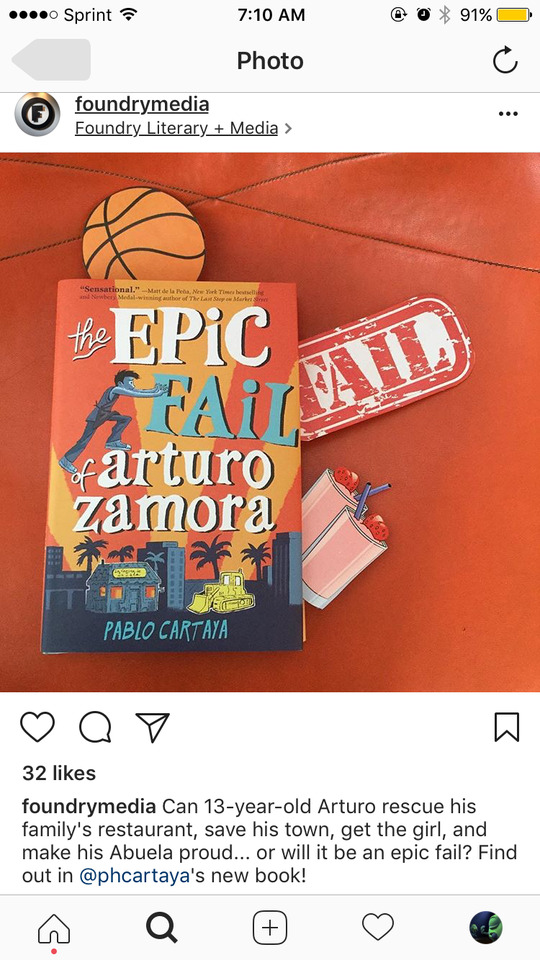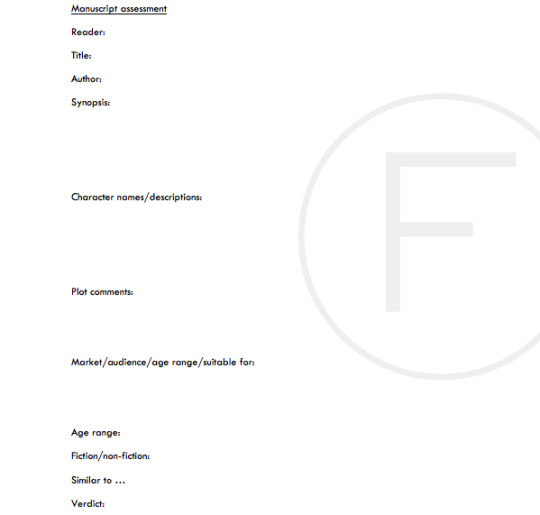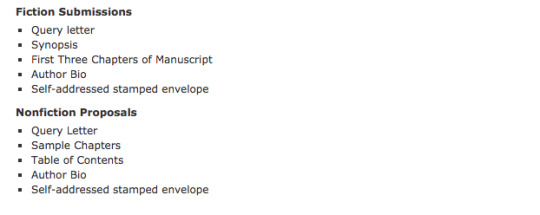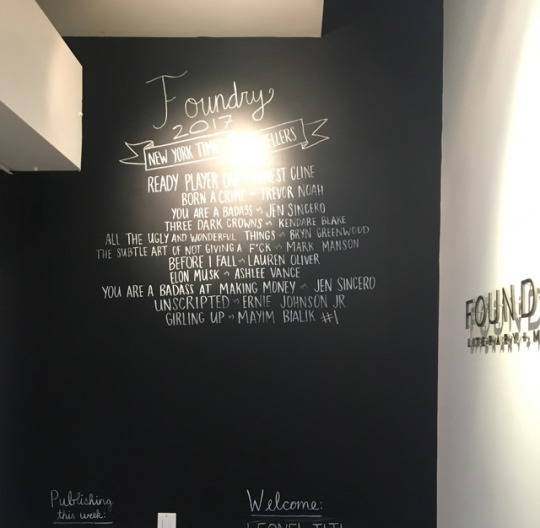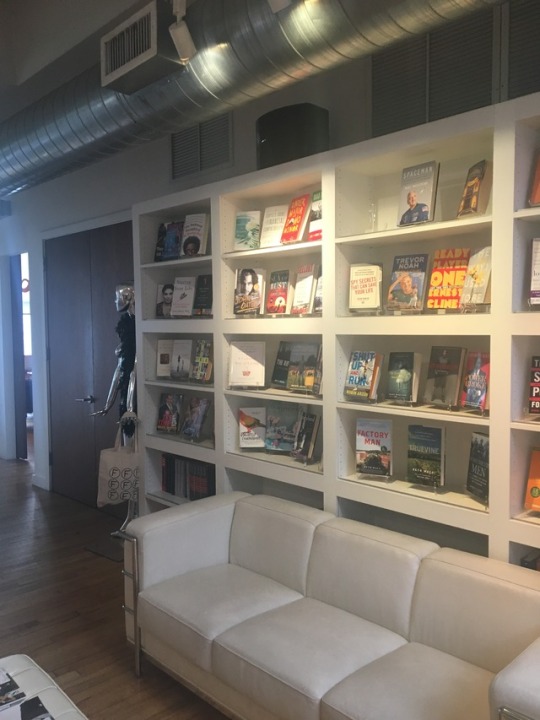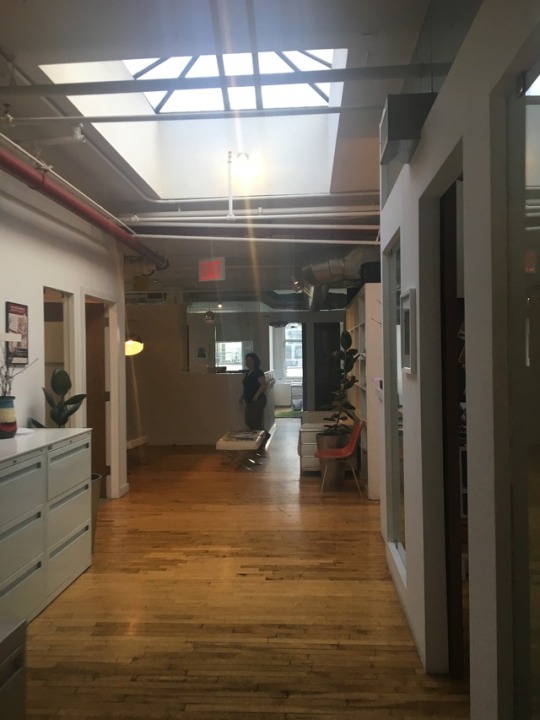Text
What I Learned
I really enjoyed my time interning at Foundry Literary + Media. I learned a lot about the literary and publishing industry that I knew absolutely nothing about before. It was a great experience to learn things up close and actually experience it.
A few things that I learned:
It is really REALLY hard to get represented by an agent. Not one book went onto the final round when I was with the company. And not just for Reiss, but for all the other agents as well. So many books are turned down and sometimes it can get really hard to say no to a book even though you have too. Some nonfiction books are really good but because they have no following and no past experience you have to say no. Sometimes people send really good proposals for a book and it has a great plot, but they don’t provide samples of the manuscript and you have to say no because they didn’t follow the submission guidelines. And the worst is when you get a good manuscript and the beginning is so good but then everything starts falling apart and you want so bad to say yes, but you know that there are significant problems. There is also so much that I don’t know about the industry and so much stuff that I still need to learn.
I also learned that I am a really fast reader. I knew that before but this really just sealed the deal. This isn’t a life changing discovery but Jessica and Claire would also compliment me on how fast I read. I read a 330 page full manuscript, wrote up a full 2 page report, and read 100 pages in another book for fun, all in one day. I read about 10 full manuscripts, and about 7 books that were lying around the office in my own free time. This internship helped me remember why I love reading so much. And as cliche and corny as it is, it made me realize that I need to stop and take some time to read or just think more. Some of my best moments were sitting, eating lunch in Union Square reading a book.
I realized that I may or may not want to be a literary agent, but I still have time to figure that out. Not much time, but still time. A foreign rights associate sounds like such an incredible job. They have the same job as an agent but dealing with the foreign rights end and it sounds amazing. Getting to travel around pitching books to publishers seems amazing. From a girl who knew exactly nothing of what she wanted to be, to have some inkling of an idea of something that she may want to pursue was awesome.
Finally, I realized that I can’t have a desk job. While I love the internship, I was cramped up inside all day reading. My brain was fried because I was reading so much and I was exhausted at the end of each day. When I was reading my queries I was longing to be outside reading and enjoying the fresh air, so when it was my lunch break it was a moment to rejoice. I purposefully changed where I sat during my third week so I could have more access to the natural sunlight because it made me less restless (but only by a bit because after 12 the sun would be due west and the natural light would be gone, but those few hours of basking in the warmth was nice and I cherished it). And just to make it known, none of those problems had to do with the internship or Foundry, that was me.
Overall, I really enjoyed my time at Foundry and feel as though I made a difference. Even if this is rude or brash of me to say, I saved the world from having one more book that gets published and flops, ruining the authors happiness and future successes. I feel as though I contributed to society in a meaningful way and I really really hope that the interns at Foundry now find the next bestselling book.
*information in this post is all from Hope :D
0 notes
Text
Intern Classes
Along with being an awesome literary + media agency, having amazing agents, and overall just being a super successful business, Foundry held internship classes for all the interns (there were a lot) where agents would talk to us for an hour and teach us about something in the literary and publishing industry. The classes were super helpful and informative, and although there are two classes that I (unfortunately) cannot include due to my lack of writing utensils and paper at the time, I have very detailed notes from three classes and I plan I can impart some of the information I learned onto whoever has the pleasure to be reading this. Some points will appear in a bullet-point manner.
Foreign Rights Department:
The Foreign Rights Department’s job is to sell the foreign rights of manuscript. This entails going to the three big Book Fairs; London (March and April), Frankfurt (October, the biggest), and Bologna (May). The book fairs start in the morning, around 10, and end between 5-6:30pm. Throughout the whole day, the foreign rights associates meets in 30 minute shifts (sometimes not even a break for lunch). Foreign rights associates meet with book publishers and editors from different countries all over the world. The foreign rights associate usually meets agents from these countries in this order : London, Germany, Italy, Israel, Brazilian. The foreign rights associate has a long list of about 15 pages that have different books Foundry has published that may appeal to editors across the world.
After the meetings, from around 6pm-2am there is a party/social event for the agents, publishers, and editors to network and just blow off steam. Each book fair lasts about a week, but a lot of money can be made during this time, $100,000-$200,000.
Selling books in foreign countries is harder than domestic selling. The books sell for cheaper and the authors hardly ever make royalties. What manuscript you sell can depend on the country and also what is happening politically, economically, and socially. Recently, Foundry published a book about a girl and her journey with being Muslim, and editors in London were more reluctant to buy the rights to the book because of the recent events.
*Also co-agents are the agents of the book in the foreign country. Domestic agents never talk directly to the foreign publishers, co-agents do that.
*While going to these three book-fairs, the foreign rights associate goes to several others throughout the year as well.
Foreign Contracts:
The smaller the country, the smaller the advances (5K or lower). But in big countries such as the UK and Germany, the advances are a lot higher. Of course it depends on the book, but usually in the continent of Asia, all books have small advances, other than business books which sell really well.
Authors get some say in cover design.
Foreign publishers do not accept e-signatures.
E-BOOKS: sometimes the e-books rights will be added to the contract (meaning it can be sold in e-book form) but others times not. Contracts must specify the rights to where the books will go.This means stating where the text can be used. If it can be used for e-books, but none of the writing changed, enhances, abridged, or dramatized that will clearly be stated.It also means it can’t be used in video games, movies, magazines. Royalties happen to be higher to for e-books: 25%-35%. Whatever the e-books earns goes towards the main advance.
There is always a publishing delay because the author needs to see the final copy before it is sold.
Foreign contracts can be terminated if rules are not allowed.
Also the money earned by the author and the money earned by the agent is different for domestic and foreign affairs.- Domestic: 85% Author/ 15%Agent Foreign: 50% author, 30% foreign rights department, 20% Foundry
DOMESTIC:
Domestic Territory changes. It could mean the book rights are World English. This means it can be sold everywhere (despite a few countries). World Rights (which Foundry hardly ever does), the publisher has the foreign rights. North-American English- USA, Canada, and the Philippines, it can only be published in these countries.
When seling manuscript, you can ask for it to be revised. The publishers have 30-60 days to get feedback to you on whether or not they will pursue the manuscript. If accepted, the publisher gives detailed notes and gives the author a certain number of days to make the revisions. If the publisher likes the revisions made then the manuscript is picked up.
For domestic cover designs, the authors approval is not needed, but sometimes you can ask to be consulted.
The authors are given 25-30 copies of the book before it is sold in stores.
For print books, you get a certain percentage for the price of the book.10% for the first 1000 sold, then 15% for the books sold thereafter. There is also a bonus advance that happens if the books sells a certain amount in six months or if it makes New York Times Bestseller.
SUB-RIGHTS
The contract must if the the author has first-serial rights or second-serial rights. First Serial- texts from the book in newspaper, magazine, etc before the book is published. .
Second Serial use of the text after the book is published
Authors usually retain dramatic rights movie deals, shows, etc. You can also sell the audio rights. Authors sometimes keep the rights because Audible and Amazon will offer their own advances and that can make a lot of money for the author.
Option clause- if the author writes another book that is in the same genre and around the same length of their previous book, the publishers can stake claim on reading it first before any other publishers. This can happen years after their first initial book is published.
Children and YA Books: This internship class dealt with different genres of books, but primarily focused on Children's. Children’s books is separated into three groups: Children, Middle-Grade, and Young Adult.
Children’s books:
Almost always pictures books that are 32 pages long. If they are not 32 pages then the book will have a really hard time getting signed.
The books are for kids ages 3-6 and the stories focus on kids this age.
Picture books do not usually sell for a lot, $5k-$20k, because it is really hard to find a new picture book that sells well since parents usually buy picture books that they read themselves.
People who write picture books usually have a background in design or have connections with artists.
Middle Grade: Books are for kids ages 10-14. The protagonist is 12-13.
They almost always take place in a school.
The main arc of the story either has to do with friendship, self-discovery, how large the world really is, or how your parents are real people. There is no romance in these books.
Usually sell around $10k-$20k.
Young Adult (YA):
Usually for readers 15-18, but a lot of adults read these too. Has the most readership of all the genres, this is where social media platform matters the least.
The protagonist is between the ages of 16-17, hardly ever over the age of 18.
Deals with romance, sex, drugs, and intense points of conflict that could not be addressed in middle grade books.
The protagonist needs to be rational and there needs to be a valid reason why the parent is not in the story or why there is no adult supervision. This is a deal breaker when finding good manuscripts, but for fantasy or science fiction anything is possible.
YA books usually toe the line between how dark a book can really be.
Because YA is the most popular and on such high demand, it is the most selective. Finding a good manuscript is a lot tougher than finding one for children or middle grade.
*information from the agents at Foundry.
0 notes
Text
The Front Desk
Sometimes when there was no one covering the front desk, I would have the privilege to take over. I was not supposed to be doing this a lot because Jessica really wanted me to be experiencing the intern life reading and responding to queries. However, I still sometimes got roped into doing it.
When I was at the front desk, I would just sit there with printed out copies of queries or just whatever book I wanted to read, and when a visitor came, I would bring them to the seating area and tell them to sit down. I would ask them if they wanted water, coffee, or tea, (then I would have someone else make the coffee or tea), then I would get the person they are there to meet. I won’t lie, I only helped out with visitors once, but about 5 people came in and it was so overwhelming. I had no idea what I was doing, but in those moments I was the face of Foundry so I had to appear calm and collected even though on the inside I was screaming. And while I only interacted with visitors once, I was stationed at the front desk a few times when other interns kicked me out of my desk because they needed to use the computer I was working on. But I didn’t really mind because I got to read and who doesn’t love that? (Again, not sarcastic)
*information from personal experience
0 notes
Text
BookScan (where every book can be found)
One of my favorite tasks I had was to work on BookScan. I love books, and so having an almighty program such as BookScan that keeps track of how many copies of a book is sold is magical.
I worked with BookScan once a week, but in my free time or when I was just too overwhelmed with queries, I would take a break and search up a random books and see how many were sold.
Okay, so getting into business, BookScan is an awesome software that tracks that sales of almost every book in existence. Just how everyone has a unique fingerprint, every book has a unique ISBN code that allows you to track its sale. Every Thursday, I would track the 80 (or so) books that Reiss has published and track the sales per week, year, and release date. This process would take about an hour. This was to track the sales of the books.
BookScan is really cool because you can search books by author, title, or ISBN number and get into great detail about the sales. You can see how many hardcover books were sold, how many paperbacks were sold, how many are sold in each state, how many are sold in rural, suburban, and urban areas, and how many ebooks are sold. You can also see the bestselling books in every genre and how long a book has been on the bestseller list.
*information from personal experience
0 notes
Text
Social Media
Along with queries, I had the fun task of helping out with social media. (It may have come off sarcastic but I genuinely had fun doing the social media.) I would help out on the platforms Instagram (FoundryMedia) and Twitter (FoundryMedia). If you happen to follow either of those accounts you will have seen my work. (And if you don’t already follow you should do so now and admire the work that I and many other interns at Foundry have done).
For twitter, I had write eight tweets that would be posted various times throughout the day. The tweets would range from Book Birthdays, Book giveaways, author promotions, funny and cute quotes, and mentioning interesting articles relating to publishing. I’ve done this five times, meaning I’ve created 40 tweets. My job was to draft the 8 tweets and send them over the Claire so they can get approved. When crafting tweets, there needs to be a wide variety of tweets, I must pay attention to what books came out that week, what Foundry authors are posting about, what holidays are coming up, and what has been talked about before. Foundry’s twitter is a really good way to get people aware about the company, so a good image must be put forward. I had a lot of fun creating the tweets and finding cute quotes and cool stories to post about. (I will provide all my tweets and Instagram posts as my last post). After the tweets are approved, I put them into HootSuite (a website that allows you to schedule when tweets are posted). The whole process of writing, approving, and scheduling the tweets would take around two and a half to two hours.
For Instagram, I had to take creative photos of upcoming books and write creative and cute captions. This seems very simple, but it was actually very stressful work. Having to come up with ideas for the photo that were original, looked good, and show cased the book was a hard feat. Luckily I like taking photos and I am a pretty creative person so I did okay. This was actually really challenging because I needed to make sure that each photos were unique, highlighted the book, and that the photos had to do with the book. I was given a whole guideline about what types of photos I can take and where. Three of my posts made it to Instagram and two are coming out in the future. Coming up with the caption was the hardest part. And although I was given a template, I did not want to just copy everything that had been done before. The captions needed to be quirky and the hashtags were (surprisingly) important as well. Good hashtags create good traffic, something that every company wants. Taking the photos and writing captions takes about an hour to and hour and a half.
*information was from personal experience and a social media hand-guide that was provided to me the Foundry
0 notes
Text
I have a Query about Queries
Buckle up, because this is gonna be a lot of information.
In simple terms, queries are people’s submissions. As mentioned before, I would read them every single day, fill out a template, then state my opinion about every one I read. It was hard work, but also very fun and rewarding.
Every query submission had to follow a guideline (as shone in the previous post). If those guidelines were not followed, the query would have to be deleted, no if, and’s, or but’s. As well, if a person addressed the email in an informal manner or makes it obvious the letter was sent out to multiple agents, then it would be deleted. If a person doesn’t read the guidelines for submissions, it is very telling to how they would be as a client.
I mainly read fiction submissions during my time at Foundry. As clearly stated in the submission guidelines, the first three chapters must be provided. For most of the submissions that meant between 30-50 pages. My job of being an intern was to read the query until I finished the chapters provided or until I could not read anymore. After reading a query (no matter how far I got into it), I would write up a report providing a synopsis, a main character list, notes I had about the plot, what age range the work is suitable for, and of course, my verdict. For the first three weeks I would fill out the long template that was provided in the previous post. But after those first three weeks, I had proved to Jessica that I had an understanding of what Reiss was looking for and how to fill out the template. I was upgraded to filling out a shorter form and having direct access to the query submissions. This meant I did not need to wait for Jessica to print out submissions, but I could just long into the email and start reading them. I really liked this little upgrade because it made me feel more “in charge” in a silly way.
Deciding the fate of the manuscript was the hardest part. I could either give the query a pass meaning the author would get a nice email stating how their work wasn’t fit for Reiss, or I would give a “Moves on the next round of evaluation”. This meant that the author would receive and email asking for the full manuscript. I did not keep track of all of the query submissions or full length manuscripts I read but if I would estimate I would say I read around 100-150 queries and around 10 full length manuscripts. This does not seem like a lot, but for each query submission to be around 30-50 pages and the shortest full manuscript being 190 pages and the longest 710, this was not an easy job. However, I had a fun time reading the submissions. I had to give passes to a lot for multiple reasons: the writing was not strong, the plot was confusing, there was too much telling and enough showing, or I just don’t like the submission. Writing a pass never got easier. The submissions always included hopeful emails and “love letters” to Reiss thanking her for giving them this opportunity, and it sucked knowing that I could and would crush their dreams. However, I had to be realistic and think about what would sell and what works for Reiss. And not to be rude, but some submissions were clear passes and those were always fun to receive and read.
The best moment was when I would read a query and ask for the full manuscript. Obviously, Jessica had to approve this decision and think that the submission was a good read or fit for Reiss. There were multiple times when we disagreed and I thought something was full-manuscript worthy and Jessica would see that it’s not. At first when I got those back and saw she disagreed I was disappointed a humiliated. I wanted to show that I knew what I was doing and that I was a great intern, but then I quickly realized I am not a professional and Jessica clearly knows what she is doing. When I got her feedback and she explained to me why the query was a pass, I felt educated and thankful because I now knew more about what to look out for.
Once I got the full length manuscript, the instructions were the same: read until I wanted to stop or until I finished the book. When I got the first full length manuscript it was one that was asked for by another intern. That did not stop my excitement though and I read the 380 page manuscript in less than two days. After about my fourth manuscript, I picked up on a trend. For most manuscripts, the beginning was always amazing, wonderful, and I fell in love. But then when it got to the middle, everything would unravel. The characters would have dramatic out of character shifts, the plot would fall apart, and the writing would just start to weaken. It was horrible to witness because when the beginning was good I started to support the author and their work. But then it would start to fall apart and I would have to say no. I completed all the full length manuscripts I got except one because it was 710 pages and after the first 100 I was bored. There was only one manuscript that I read in its entirety that I loved start to finish. I can’t reveal what it was, but I assure you it was incredible. However, I never got to see what happened.
While at interning at Foundry, there were 0 books that made it past the full manuscript round. There are some that I left before I heard the verdict, but none ever actually got to Reiss. I was so shocked and saddened when everything ended and nothing had gone past the full manuscript round. I asked Jessica on my last day how many books (fiction, because that was mainly what I was reading) did Reiss pick up a year. I was shocked to learned that she only signs onto 2-3 fiction books A YEAR. 2-3 A YEAR. I had to take a moment because the odds are so few. I felt a lot better for myself and a lot worse for the authors submitting their work.
After receiving this shocking news, I asked Jessica would ideally would happen after a book made it past the full manuscript stage. When a manuscript is approved, Reiss and Jessica will compile a list of editors they believe would work with the manuscript. It can take between 1-4 months for the editors to get back to the agent on whether or not they will take on the project. After all the editors.publishers reply with a yes or no, the remaining companies will have a bidding war auction for the book, delegated by the agent. Whichever editor/publisher offers the best deal and whichever one that the author feels most comfortable with is the one the author signs on to. *A little secret, the author will not always sign onto the editor/publisher that offers the most money. For another agent, their client was offered a deal by two publishing companies, one of them being run by Oprah who was offering less money that the other publishing agency. The author went with Oprah (although they were getting less money) because they trusted what Oprah’s company had envisioned for their project and thought it made the most logical sense.
Getting back on topic, non-fiction and fiction query submissions had slightly different guidelines. I would still read the non-fiction submissions as I would the fiction, but I also had to take into account the author’s platform (their social media and if they have a following). If the author did not have a big following, that would effect the final verdict. It is important for a non-fiction author to have a big following, or else it will be harder for them to sell books.
At Foundry, they work non-exclusively. This means they will do their hardest to match you with an agent who understands your work. If a person submits their work to one agent, and that agent realizes the work isn’t suited for them but another agent, it will get passed along.
*if there is a referral from someone that Reiss knows closely, those go to the top of the pile and I read those queries immediately.
*all information was from personal experience of talking to Jessica
0 notes
Text
What I Did Day to Day
Ok, buckle up because this is where things start getting long and kinda boring. I tend to ramble but I’m gonna try to be straight to the point and makes things as interesting as possible.
My job title was “an intern for a literary agent”, but that doesn’t sound that exciting to I would call myself the backbone to the office. I kid, I kid. I worked as an intern for Reiss, but I was primarily in contact with her assistant Jessica. Reiss is a very successful and busy agent who was living her life and traveling all over the country so I wasn’t able to see her that much. But when I did she was very nice. I had a splendid time working with her assistant Jessica who I took orders from.
My hours: Monday, Wednesday, Thursday, and Friday from 9:30am-5:30pm (except for the few days when I had to get my braces off, summer hours, or technical difficulties in the office.) In total I worked 155 hours. Even though I will touch on how the internship experience was for me in a post that is present in the future, going from never having a job before to working 8 hours a day four days a week was a hard adjustment. I was tired after the end of each day from reading so much, and I honestly feel like I have slept more in these few weeks that I have in my entire life.
Back to what I did:
The first two weeks at Foundry, I was just getting used to everything and learning what was expected of me. On the first day I was given three books, two to skim, and one to read. They were Reiss’s clients, and I was given them to see what type of works Reiss specializes in. The first two books were memoirs, both written by female entrepreneurs. (Agents primarily work in a couple of genres, but those genres can constantly change.) Reiss has recently taken an interest in female entrepreneurs and female writers, so those were the books I was given to read. One book was about how to start your own business, the other was about a successful medium and how that career path affected her life. The last book I was given (and the book I read in its entirety) and the last was an Adult fiction book called, The Rift Uprising. I was asked to read the Rift in its entirety because I would get a galley of the second one to read later that week, and a very rough draft of the third one would possibly be coming in while I was interning. (the draft did not come in, and I was really sad because I wanted to see how everything ended. But I digress.) I am a very quick reader so this internship was perfect for me. I was often told by Jessica that she was impressed by how fast I read and I was secretly super proud because yeah, it’s a special talent of mine.
Other than reading Reiss’s clients books,Jessica gave me a few queries for me to start reading. I will get more into queries and what they are later on, but in simple terms they are people’s submissions. Jessica would give me hard-copies of queries and gave me a template to fill out after I read each one. Then I would email my forms to her so Jessica could look at them. Along with reading the first two books of the Rift and reading submissions, I was also reading full-length manuscript submissions.
That was mainly what I did the first two weeks, and once the third week started I was promoted in a way (not really at all) because I had a firm understanding of what was expected. Instead of Jessica bringing me hard-copies of queries and filling out a long response sheet, Jessica gave me the sign in to Reiss’s work email and I started reading the queries. This meant that after the third week and on, I had a pretty set in stone work day: I would go to the office, sit down at my computer, open the email, go to the latest query submission, read them, write up a report. This would happen every day I was there, and if I had asked for a full manuscript then I would read those as well and stop reading the short manuscripts.
Along with this, every Thursday I would do BookScan. I would also help out with social media, I would construct tweets and Instagram captions and photos, and work at the front desk a few times.
*full names not included.
0 notes
Text
Literary Agent? What’s that?
A literary agency is the thing that stands between an author and getting picked up by a publisher. In a more concise and professional definition (according to Writer’s Relief), “A literary agent is the middleman between you and potential publishers—they are your best hope for getting your book published.”
Literary agents find editors to edit your work, publishers to buy your work, manage the business affairs after the deal goes through, and help you with all the hard stuff that a first-time author may have no idea how to handle. Those hard things may include publishing contracts that state what rights the author has, negotiating a price for which your manuscript can be sold, and more of that fun stuff.
*HOWEVER* It should be known that literary agents do not purchase the rights to your book, nor can they promise that your work will get published.
*This information was cultivated from talking to agents and Writer’s Relief. To learn more, read the article here: http://bit.ly/2sKIW4I
0 notes
Text
The Present
Foundry Literary + Media is a literary agency and media development company that helps people get published and achieve life long dreams. Not only does Foundry help people get published, but they also have their own Filmed Entertainment department and Foreign Rights department. Foundry caters to a wide variety of people, from first time writers to television personality. Foundry has a team of agents that specialize in a wide variety of genres; from fantasy and science fiction, young adult and middle-grade fiction, nonfiction, memoirs, etc. There are 13 main agents that regularly travel to LA to meet with producers and such to create a stronger connection.
*information from Foundry’s official website.
0 notes
Text
The History
10 Years ago, Peter was working at Greenburger Associates when he left and Reiss and he started Foundry. Peter and Reiss continue to develop and nurture writers at Foundry along with many other agents.
Peter started out as an assistant to an agent at a small company where he cultivated his skills for foreign rights and international publishing. After five years of working there, Peter decided to part ways and took a job at Sanford J. Greenburger Associates. He quickly developed his on clientele and worked with international bestselling authors such as Dan Brown and Nicholas Sparks. And in 2007, Peter and his business partner Reiss decided to launch Foundry Literary + Media.
Before being an agent, Reiss was a lawyer and a small publisher. Now she is a published writer, an extremely successful agent who mainly represents non-fiction titles (though occasionally dabbling in commercial fiction), and one of New York’s largest providers of homeless services for women and children.
*full names will never be included/information from Foundry’s website.
0 notes
